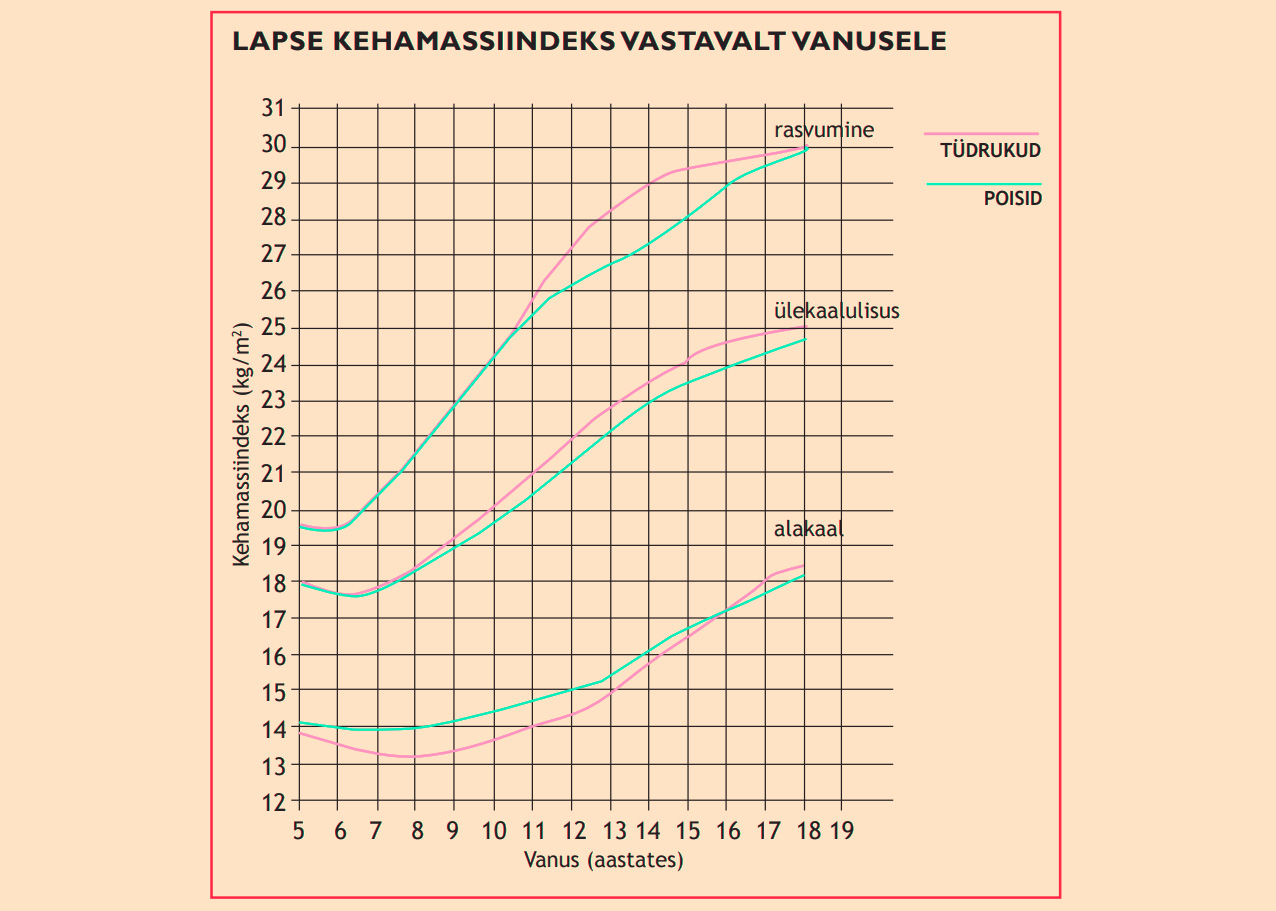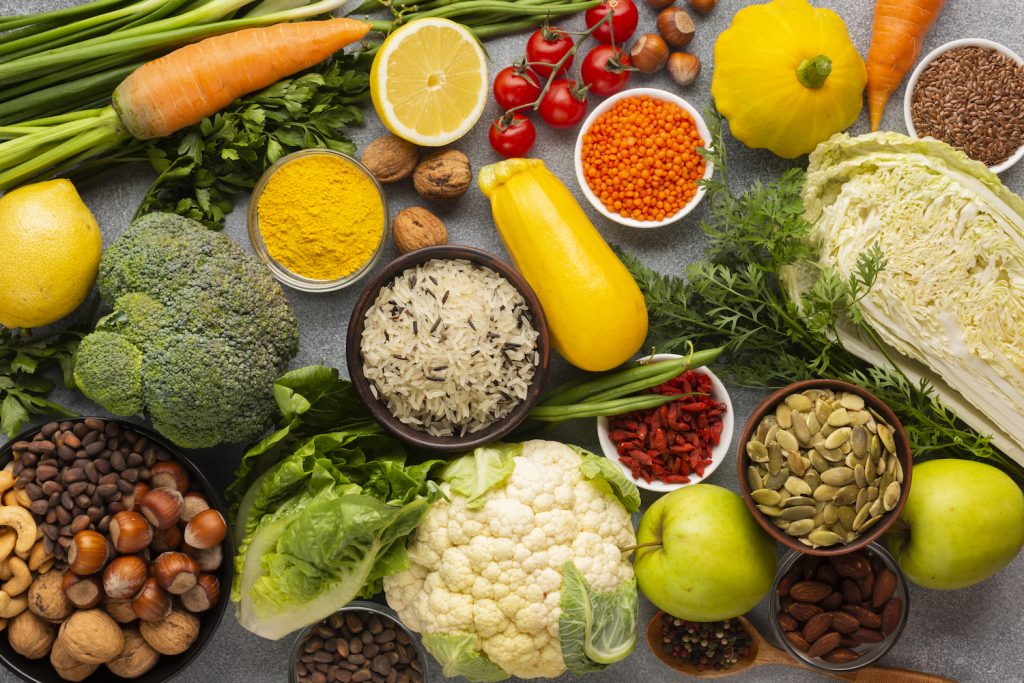During adolescence, people tend to compare themselves to others and feel acutely the social pressure to look a certain way. It's no wonder that many teenagers take the reins and start shedding (imaginary) extra pounds with their own peasant wisdom. The result can be an eating disorder or lifelong health damage.
Losing weight properly can improve your health and boost your self-esteem. Teenagers can also safely lose weight. But at what point can we say that it is excess weight that needs to be shed?
What is overweight?
Set realistic goals for yourself
Stop consuming sweetened drinks and sweets
Give your body nutrients
Limit the time spent on smart devices, screens of all kinds, and books
Avoid dieting.
Summary
What is overweight?
Comparing oneself to others and having unrealistic expectations about one's appearance and weight are unfortunately quite common during adolescence. People are particularly sensitive to being overweight, but we should not forget the other side of the coin, being underweight.
To stay healthy and strong, it is important to maintain a normal weight, avoiding both being overweight and underweight. Both shorten life expectancy and are associated with health risks. Because a teenager's body is growing and developing rapidly, it depends more on nutrients from food than an adult's body, so being underweight for a teenager can be considered even more dangerous than being slightly overweight.
So how do you know if your weight is normal or not? There are several ways to do this. One of the most common is the body mass index (BMI). To do this, you divide your weight in kilograms by your height in meters squared.
For adults, a BMI between 18 and 24.9 is considered normal weight. Teenagers should remember that there is a separate BMI chart for children and young people.
 For example, a person 164 cm tall and weighing 60 kg would have a BMI of 60/1.64×1.64=22.3, which is a normal result for an adult. A 14-year-old child would be borderline overweight, an 11-year-old child would be slightly overweight, and an 8-year-old child would be obese.
For example, a person 164 cm tall and weighing 60 kg would have a BMI of 60/1.64×1.64=22.3, which is a normal result for an adult. A 14-year-old child would be borderline overweight, an 11-year-old child would be slightly overweight, and an 8-year-old child would be obese.
The advantage of BMI is its simplicity. Measuring your height and weight is within everyone's reach using home tools, and if the calculation formula seems complicated, the internet is full of calculators.
The disadvantage is that BMI does not answer the question of whether the excess weight is from fat or muscle. To understand this, you should measure body composition. Since no one usually has anything against bigger muscles, the question usually comes down to the percentage of fat.
Similar to BMI norms, fat percentage standards different in children and adults.
As a reminder, avoiding underweight is at least as important as avoiding overweight, if not more so. Overweight people are more likely to get the nutrients they need from food.
Being underweight does not necessarily mean that a person is eating too little in terms of quantity or calories. It is possible that they are eating the necessary amount of energy, but most of it is empty calories, meaning the body is not getting enough nutrients.
In this case, burgers and pizzas, let alone sweets, may not be much help in the fight against underweight. Instead, you should look towards less processed, more nutritious foods.
Here are five tips for teenagers to maintain a healthy weight.
Set realistic goals for yourself
Estimate your BMI or body fat percentage using the charts above, and if you find yourself overweight, take a deep breath, count to ten, and sit down. No matter how important it may seem to lose weight, the focus should always be on a healthy lifestyle, not weight loss.
A healthy lifestyle, including a healthy diet, helps prevent both overweight and underweight, while providing the body with the nutrients it needs for growth. Low-calorie diets and fasting undertaken for the purpose of rapid weight loss are particularly dangerous.
My advice is to follow the following lifestyle recommendations and give yourself time. I understand that we often want to be in great shape right away. And if you can't do it right away, you should be able to do it in at least a week or two. Unfortunately, you can't do it without significant health risks!
Give yourself 90 days to do it. If you are consistent, you will definitely see the first results after 2-3 weeks, but lasting changes take time. The success of weight loss is not measured by how quickly the weight is lost, but by whether and how quickly the weight comes back.
To achieve lasting results, you need to make changes to your eating habits and lifestyle. No matter how or how quickly you lose weight, if you return to the lifestyle that led to the weight gain, sooner or later you will gain it back.
In addition, for children and teenagers, time helps in achieving the goal. Since the body grows and develops, most of the excess weight is lost after changing the lifestyle. There is no need to restrict calories.
Stop consuming sweetened drinks and sweets
Cutting out sweetened beverages is one of the easiest ways to lose weight. Beverages like soda, many sports drinks, beer, sweet teas, milk and yogurt drinks, and unfortunately, most juices, are loaded with added sugar.
In addition sweetened beverages Teenagers also tend to consume other foods that contain a lot of added sugars, such as: candy, cookies and pastries, sugary breakfast cereals, and other processed foods that have a good dose of sugar added to improve taste.
 If your goal is better health and losing excess weight, then drinks containing added sugar and significantly limiting your food intake is the first thing you can do for your health.
If your goal is better health and losing excess weight, then drinks containing added sugar and significantly limiting your food intake is the first thing you can do for your health.
Many studies show that high consumption of added sugar can lead to obesity in teenagers and increase the likelihood of other health risks, such as type 2 diabetes, fatty liver and acne.
And as if that weren't enough, sugary, processed foods are typically low in protein and fiber, which leads to extreme appetite fluctuations and overeating. In addition to making you feel hungry, sugary foods negatively impact teens' academic ability, sleep quality and mood.
If you feel that excessive sugar consumption is your issue, read how to get rid of sugar addiction: Break your sugar addiction now – learn to tame your sugar cravings.
Give your body nutrients
Instead of focusing on the calories in the food you eat, choose foods based on their nutrient density The more vitamins, minerals and fiber, the better.
Vegetables, including legumes, fruits, whole grains, and nuts, are rich in nutrients and help with weight loss. They contain fiber keeps you full between meals and prevent overeating.
In addition to vegetables, don't forget about fruits. Fruits contain water, vitamins, and fiber that our bodies need. They also help relieve sugar cravings for those who have given up consuming sugary products.
When consuming fruits and vegetables for weight loss, it is also important to remember that a few apples or carrots a day in addition to your regular diet will not make anyone significantly slimmer. I have written the following posts on this topic: Why should you eat a green salad every day? and Estonians eat too little fiber.
 National recommendation says that you should eat at least 5 servings, or handfuls, of fruits and vegetables a day. The emphasis here is on the word at least. This minimum tends to be insufficient for weight loss. For significant weight loss, you need to eat at least 8 or more portions fruits and vegetables per day.
National recommendation says that you should eat at least 5 servings, or handfuls, of fruits and vegetables a day. The emphasis here is on the word at least. This minimum tends to be insufficient for weight loss. For significant weight loss, you need to eat at least 8 or more portions fruits and vegetables per day.
Plus, The average Estonian's diet is already nutrient-poor, giving you another reason to keep an eye on your diet and make sure there are enough healthy vegetables and nuts.
Limit the time spent on smart devices, screens of all kinds, and books
Smart devices, screens, and in some cases, books, keep teenagers on the couch for hours every day, which disrupts posture and keeps them immobile.
You don't necessarily have to exercise to stay in shape. Moderate exercise is certainly good for your health, but overall physical activity is more important for maintaining or losing weight. Sitting kills, as we all know.
 A teenager who is overweight should include more physical activities in their daily routine. Every opportunity for a walk should be used. Dog owners can take a longer walk. For example, those who use public transport can get off one stop earlier and walk between stops. They can take the stairs instead of the elevator, etc.
A teenager who is overweight should include more physical activities in their daily routine. Every opportunity for a walk should be used. Dog owners can take a longer walk. For example, those who use public transport can get off one stop earlier and walk between stops. They can take the stairs instead of the elevator, etc.
If you're a bookworm, try audiobooks for a change. Download some to your smart device, put on your headphones, and go for a walk in nature. Aim for at least 60–90 minutes of walking per day.
An active lifestyle also helps teenagers to improve mood and reduces symptoms of depression. The above talk about the need to give up sugar and eat vegetables can easily cause depression. An active lifestyle and fresh air will help improve your mood and stay on track.
Avoid dieting.
The pressure to lose weight quickly can make you want to go on a diet. There are many different diets, including those promoted by actors or singers who are popular with teenagers.
It is important to understand that diets, especially restrictive diets, rarely work for more than six weeks and can cause irreversible health consequences. Restrictive diets are difficult to maintain and often do not provide all the nutrients the body needs.
 In addition, eating too few calories can actually slow down weight loss, because the body adapts to a smaller amount of food. Instead of fasting or fad diets, you should follow the instructions above and eat balanced diet, which is rich in nutrients and fiber.
In addition, eating too few calories can actually slow down weight loss, because the body adapts to a smaller amount of food. Instead of fasting or fad diets, you should follow the instructions above and eat balanced diet, which is rich in nutrients and fiber.
Instead of losing weight quickly, teenagers should focus on long-term, consistent, healthy weight loss, or BMI reduction. It's the fat percentage or BMI that gets bigger as you grow. The goal is to get rid of excess fat, not stay at your teenage weight.
In conclusion
This list could go on for a long time, but these five recommendations are the first to start. Realistic goals, enough nutrients, and giving up excess sugar will ensure a healthier and lighter future. By adding physical activity to every day and stopping dieting, even the most stubborn extra pounds will drop.

Allan Randlepp
NutritionistAllan is a nutritionist and trainer whose favorite topics are lifestyle and longevity, including nutrition and physical activity.
How many carbohydrates can you eat?





